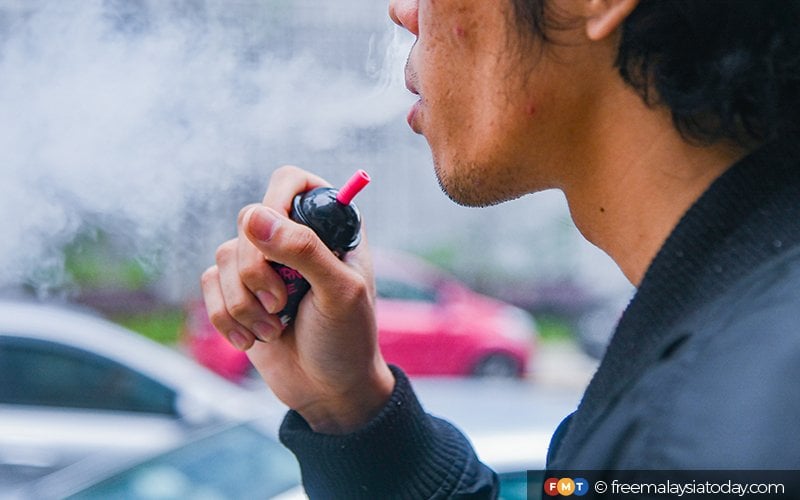
From James Chong
The recent Netflix documentary “Big vape: the rise and fall of Juul” drew attention to the US e-cigarette company, which at one time held a lion’s share of the market there. The US Food and Drug Administration (FDA) has since banned Juul from selling certain products.
Mitch Zeller, who was the director of FDA’s Center for Tobacco Products, said: “The ultimate tragedy in the tortured story of Juul is that they had succeeded where every predecessor had failed.
“They had succeeded with technology that more efficiently delivered nicotine into the lungs without having to burn tobacco leaves and inhale tobacco smoke.
“The tragedy isn’t the product that they produced — the tragedy is that they then engaged in advertising, marketing and promotion, coupled with a product that did a better job of delivering an addictive drug that appealed to kids, whether they intended it or not.
“By doing that, they blew up all the progress that was being made. That is the ultimate tragedy.”
In Malaysia, in April this year, vaping liquids containing nicotine were exempted from the restrictions of the Poisons Act 1952.
Those products, no longer regulated, can be sold to anyone (even those aged under 18). They can be advertised, marketed and promoted everywhere. They can contain any ingredient or any nicotine concentration.
Malaysia is now in the same position as the US during the rise of “Big Vape”. Back then, there were no regulations governing the vape products and vape industry.
Policymakers and regulators in Malaysia have an opportunity to stop the same situation arising here by enacting vape regulations.
However, it is clear that vape liquids will not be banned in Malaysia. Prime Minister Anwar Ibrahim said in the 2023 budget earlier this year: “The government plans to impose an excise duty on liquid or gel products containing nicotine used for electronic cigarettes and vapes.
“Although nicotine-containing vape products are still illegal, in reality they are widely sold and estimated to be worth more than RM2 billion. It would be better if its use is regulated and taxed.”
The proverbial horse has long bolted from the open barn door. It is now time to rein in the vape industry’s advertising, marketing and promotion and to ensure that vape consumers are protected from unsafe vape products.
It is also clear that the health ministry is unable to push through the passage of the controversial Control of Smoking Products for Public Health Bill 2023.
It failed to pass during the previous Ismail Sabri Yaakob government and it has failed to pass during this Anwar Ibrahim government despite being listed twice for debate in Parliament (June 12, 2023 and Oct 9, 2023).
Most of the debate on the bill centred on the Generational End Game (GEG) proposal. It is very clear that it does not have the full support of MPs.
The insistence of the ministry to insert GEG into the bill has led to its own failure to regulate vape products and the vape industry.
The urgency is to introduce vape regulations. No one opposes that, not even the vape industry. Perhaps, the government should just do that first and then only engage in the endless academic debates on GEG.
Vape consumers need protection, and vape consumers need protection now.
There are two routes to regulate vape products and the vape industry. The first is to have a specific bill in Parliament to provide the ministry with the necessary powers.
The second and quicker option is to enact regulations under the Food Act 1983.
Tobacco products and the tobacco industry have so long been regulated by the Control of Tobacco Products Regulations 2004, under the Food Act 1983.
The definition of “tobacco” is wide enough to cover vaping liquids containing nicotine. Indeed, the current rule against smoking within three metres of eateries also prohibits vaping.
If vaping in public places can be prohibited by an existing regulation, why can’t vaping products and the vaping industry be regulated in a similar way?
The stumbling block to this more efficient route is the ministry’s insistence on the GEG proposal, which cannot be enacted through ministerial regulations and must be passed by Parliament.
Meanwhile, we can only brace ourselves for the tragedy that will unfold due to the lack of vape regulations. - FMT
James Chong is an FMT reader.
The views expressed are those of the writer and do not necessarily reflect those of MMKtT.



No comments:
Post a Comment
Note: Only a member of this blog may post a comment.